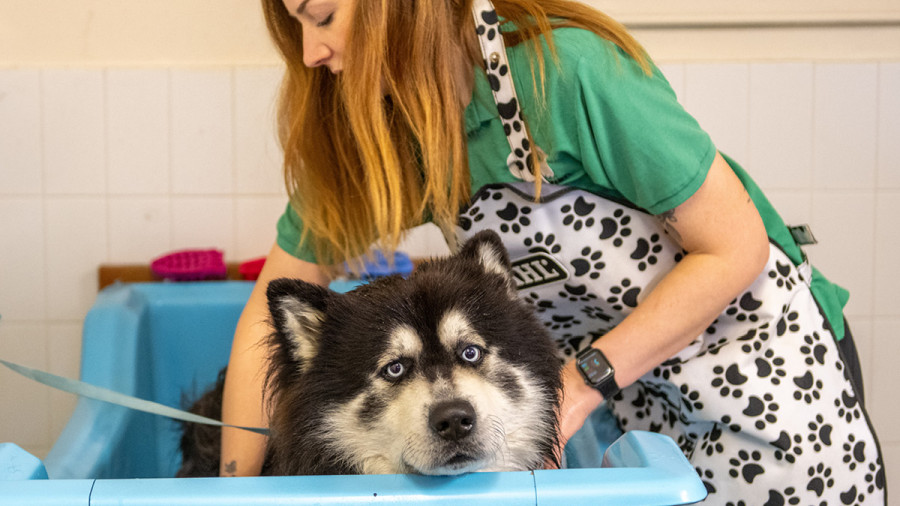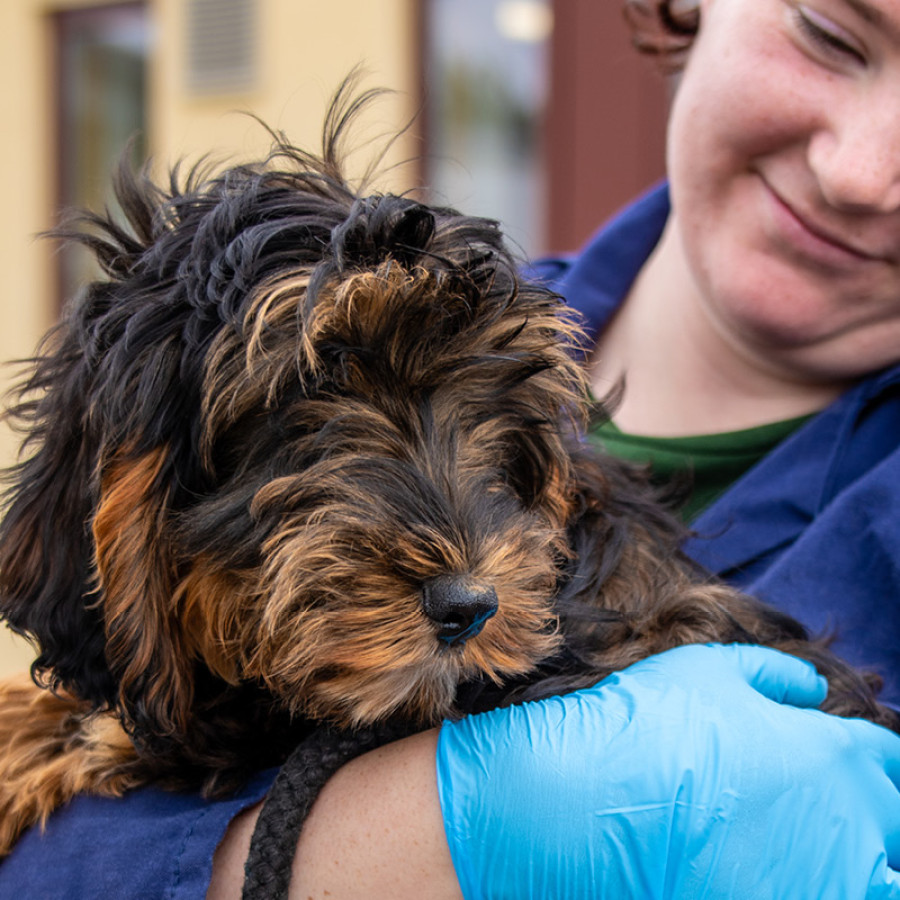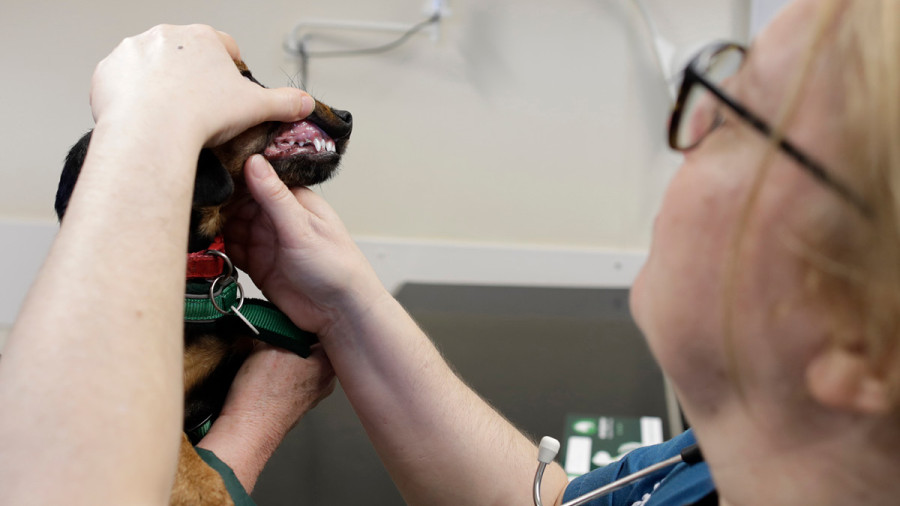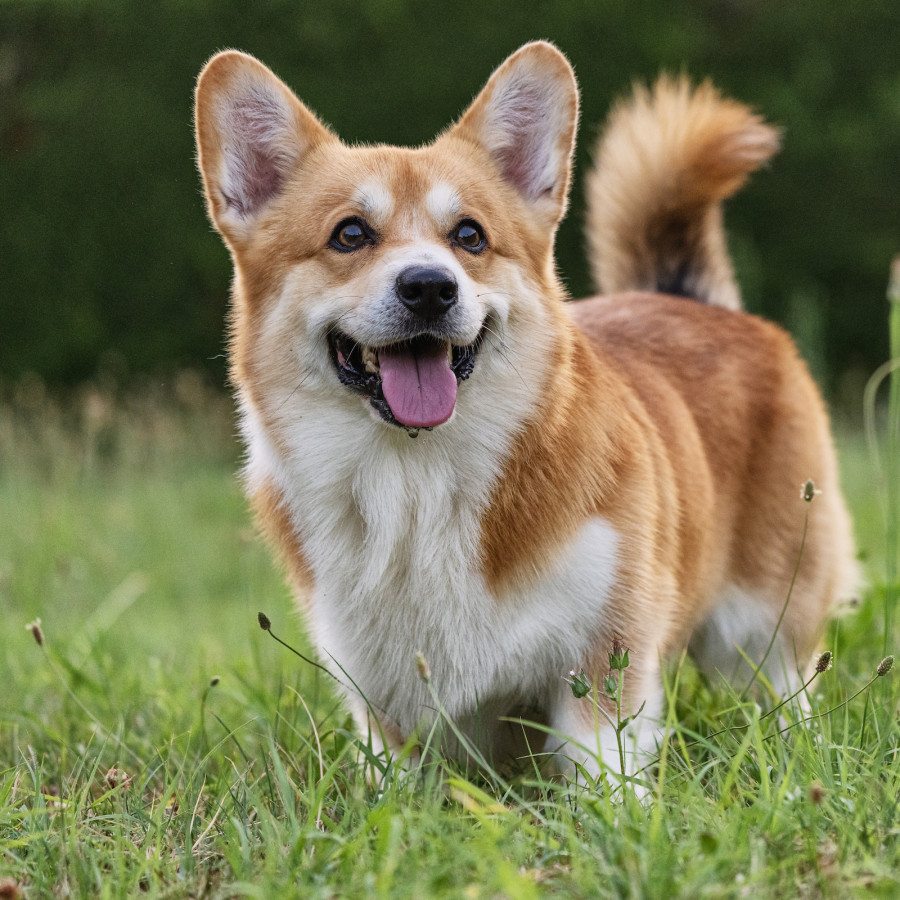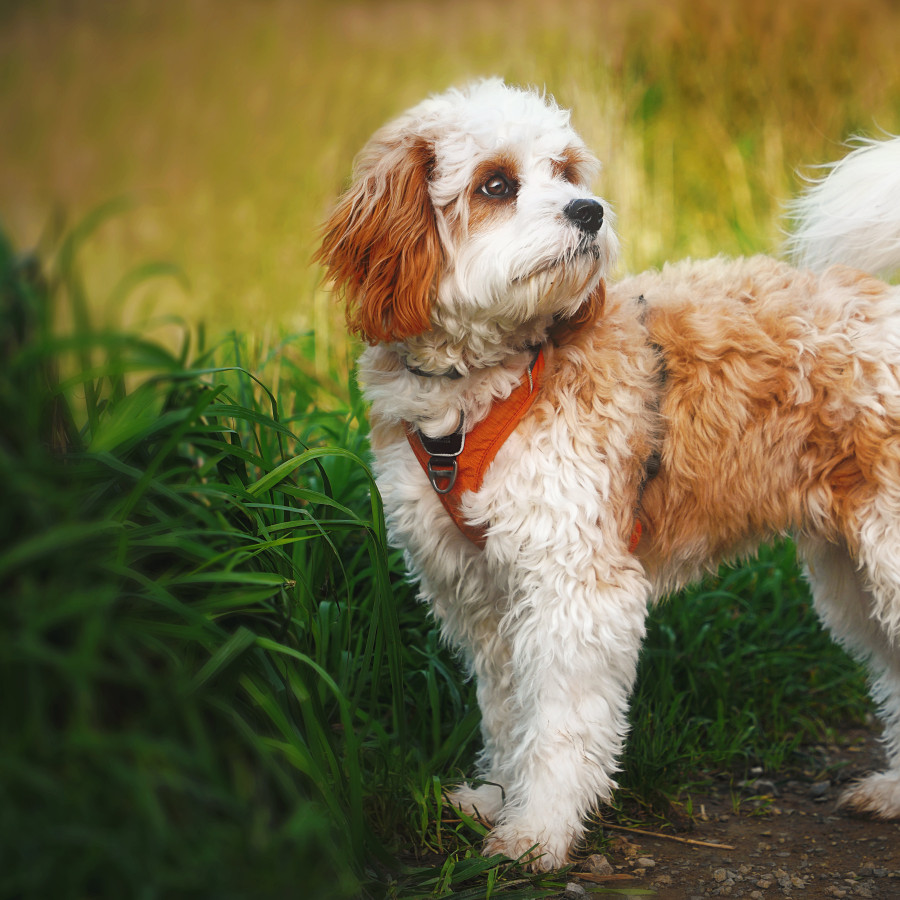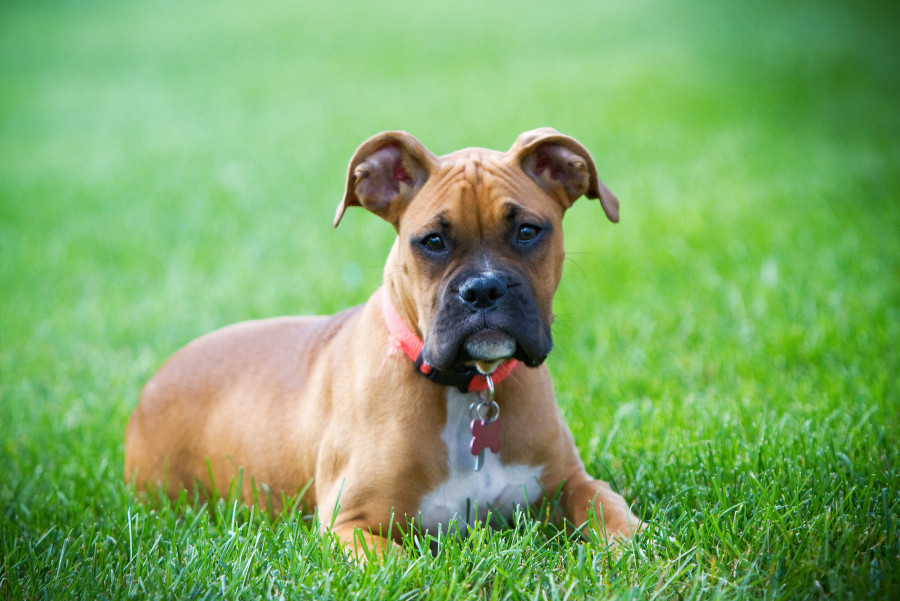What our expert says
Lindsay Arliss
Dog Behaviour and Training Specialist
All dogs have a bit of an odour to them. Sometimes this is a nice and comforting scent, but sometimes it can be an overpowering pong that spreads through the whole house!
Long coated dogs, and dogs with thick or oily coats (like Labradors, Collies, Shar-peis and some terriers) are more likely to have a stronger smell to them. Regular brushing and the occasional bath will help remove excess oils, hair, dirt, and bacteria in their coat. However, if your dog still smells even after a wash, there might be something else going on.
Dogs will also smell stronger when they are wet!
Some dogs suffer with wind and can clear a room with just one toot! This can be breed related, dogs with shorter, stockier bodies like Staffies and Bulldogs tend to produce more potent pongs! A little bit of wind is normal, but excessive or very bad smelling wind can also be a side effect of the dogs’ diet, so if you’re really suffering with stinky flatulence, a diet change might help! Reducing the cereal content in your dog’s food is a good option to try.
Some odours can be caused by health problems. For example, bad breath isn’t just unpleasant—it can be a sign of digestive problems, gum disease or dental issues, so regular tooth brushing is important.
Ear infections often come with a yeasty or fishy smell, and are especially common in floppy-eared breeds. If your dog has itchy, red skin, a greasy coat, or a musty odour, they could have a skin condition that needs treating.
Make sure you’re not washing your dog too often as this could dry their coat out, or it may make your dog more likely to roll in something disgusting so they can smell a bit more like a dog again! Washing your dog with odourless shampoo will mean you can get rid of the nasty odour, but it won’t leave your dog smelling so unnatural that they want to go straight out and roll in muck.
It can be tempting to use doggy perfumes and odour masking products. These are quite unnatural and quite strong for your dog’s sensitive nose, particularly as they can’t move away from the odour if it is sprayed directly on to them. Sometimes the use of these products will encourage your dog to roll in the nearest smelly thing they find out on a walk, so be warned!
If your dog likes to roll in dirty or sticky things, work on strengthening your “recall” and “leave” commands to stop them smearing themselves in stinky substances as much as possible!
Another thing to note is that your dog’s bedding and blankets could be contributing to a general “doggy” odour in the house, so make sure you keep these washed and aired.
